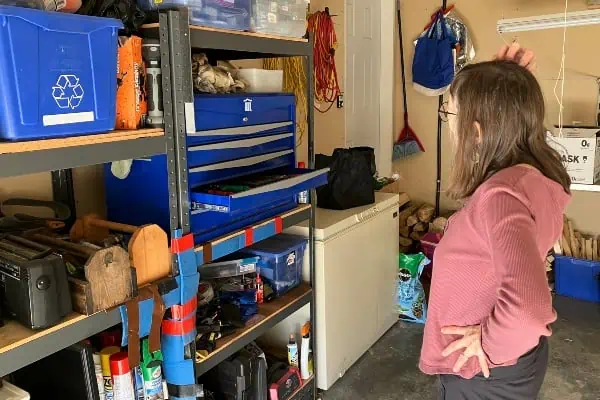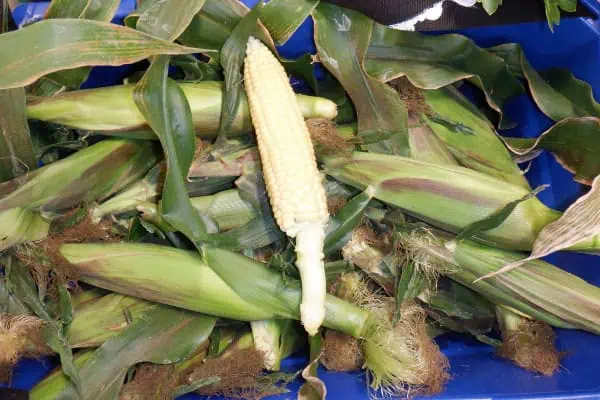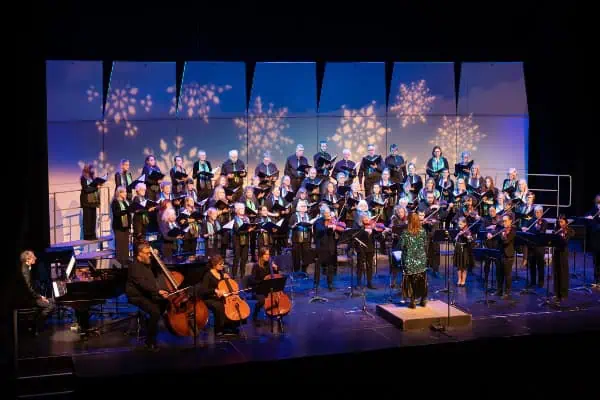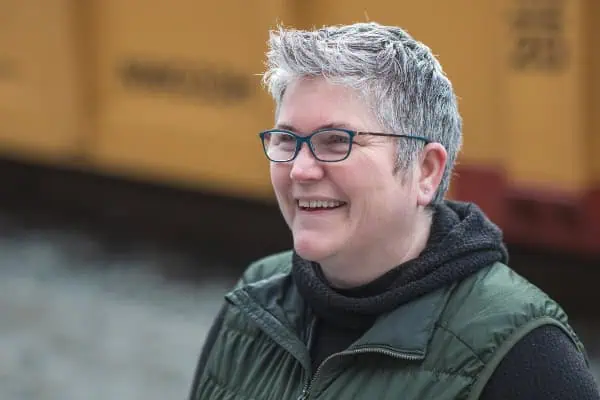Earlier this spring, I was invited to the Robert Service School (RSS) to observe a unique exchange program between Grade 5 and 6 students in Dawson City, four Grade 6 students in Arctic Bay, Nunavut, and Class 6 students in Mapaki, Sierra Leone.
The RSS students were seated in three circles, each with a computer monitor and speakers to see and hear the other participants. Peter Menzies, the Dawson moderator, was at the controls and facilitating the interaction through the chat window.
The Dawson students began the session by reading the story of the Big Dipper, a gift from the Tr’ondëkHwëch’in First Nation to RSS. In Sierra Leone, Mr. Koloko paraphrased the stories to his students in their native language of Krio. Koloko followed by telling Arctic Bay and Dawson a story of the Old Man and his seven sons.
“The moral of the story is: if you come together there is peace. When there is peace, there is unity,”Koloko shared.
“I think the story was important because families need family to live,” mentioned one of the Dawson students.
The groups connected through a virtual classroom platform called Blackboard Collaborate. The software (Blackboard Inc.) has the capability of connecting 100 computers in audio and video interaction, and is especially useful in classroom settings.
The exchange is designed to connect remote communities and work as a conduit for swapping cultural and linguistic values. The second of its kind in Dawson—the same students participated two years ago.
Dr. Bill Egnatoff, associate professor of computers in education at Queen’s University, moderated the event from Kingston, Ontario, along with Menzies and Timothy Low in Arctic Bay.
Queen’s University has been helping to rebuild public schools for 10 years in Mapaki, a community in the Northern Province of Sierra Leone—a country ravaged by civil war between 1991-2002, and still a war zone. One in four children in Mapaki attend school, and girls have only been allowed to attend for the past four years.
The students joining the Canadians in the session run a farm and their teacher is paid in food. One laptop is shared among 2,000 students—a stark contrast to the accessibility of technology here.
Two years ago, the group from Sierra Leone wasn’t able to connect with video due to their electricity availability. This time, everything worked out. The Mapaki school still has no electricity, but a solar pack and a diesel back-up are used sparingly.
“We are the only community in Sierra Leone doing this sort of exchange. We are a very unique community,” said Koloko.
Low also mentioned that Arctic Bay doesn’t have much of a global education program, and this is the first of its kind. He previously worked alongside Menzies in Dawson during his practicum.
Beforehand, teachers and students gathered stories and pictures to share, in hopes of explaining the unique aspects of their own communities. All of the students and the teachers seemed excited to be connecting together.
Menzies also broadcasted the special event live on the local Dawson radio.
“The project is designed to reinforce the importance of getting along with people,” Menzies conveyed to the listening audience, “to become friends, and a more peaceful world.”
The stories were followed by sharing with pictures from the Percy DeWolfe Memorial Mail Race, which students in Dawson had documented. What seemed to surprise the Sierra Leone students the most was the dog’s attire during the race.
“Why do the dogs wear shoes? Why are they wearing clothes?” asked one of the Sierra Leone students.
“It’s so they don’t get frostbite on their feet, and so their bodies don’t get cold while they are running,” replied one of the Dawson students.
My favourite question from Sierra Leone was about snow. One of the Dawson students was left to try and explain this phenomenon.
“It is like ice, it gets cold from the air and falls down.”
An inquiry forwarded by Dawson was about food and refrigeration.
“How do you keep your food cold in Sierra Leone,” asked Menzies.
“We don’t keep food in a fridge, we prepare it then eat it,” answered Koloko. “Some food stays longer. Cassava root stays 10 days. Banana, three days.”
The students in Nunavut were also asked about food, specifically what and how they eat.
“We eat fish, seal, caribou,” relayed the students. “We use nets, harpoons and guns to hunt the animals.”
The entire exchange lasted two hours, with everyone involved gaining knowledge about places and situations they may never have the chance to see or be a part of.
In the following months, the students will continue to exchange stories and songs unique to their communities, building relationships thousands of kilometres away through the virtual classroom space.
“We are all very far away from each other, and I think it’s incredible we are are doing this,” said Low. “And I think it’s important that we keep doing this in the future.”
Connor Matak is a singer-songwriter, working on home recording and living in Dawson City.




